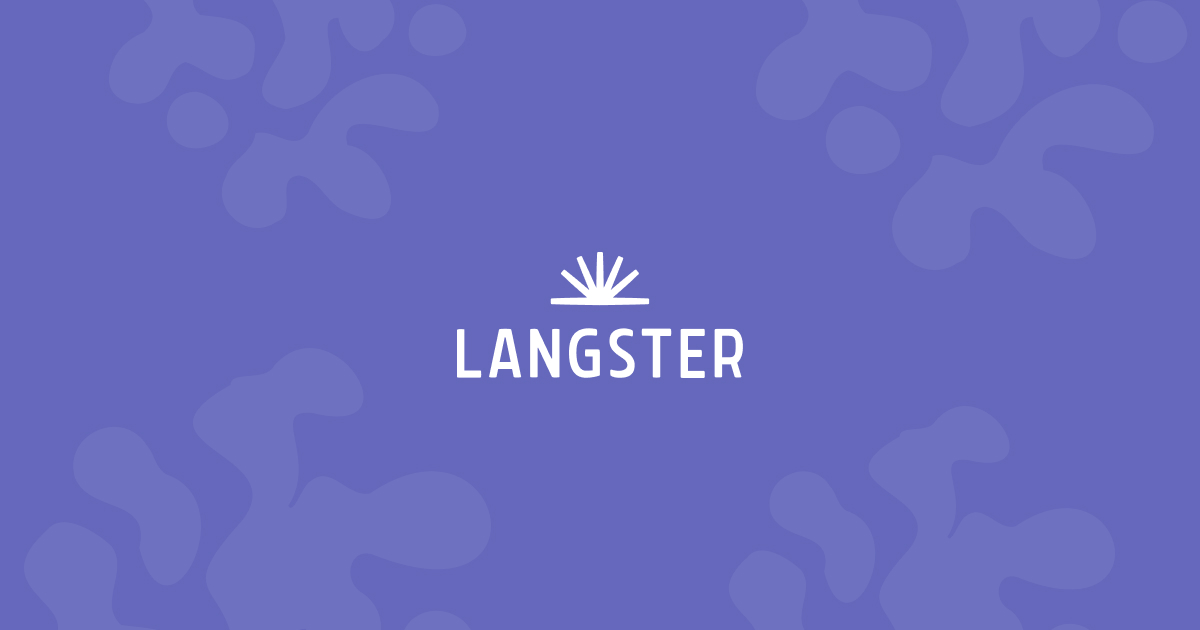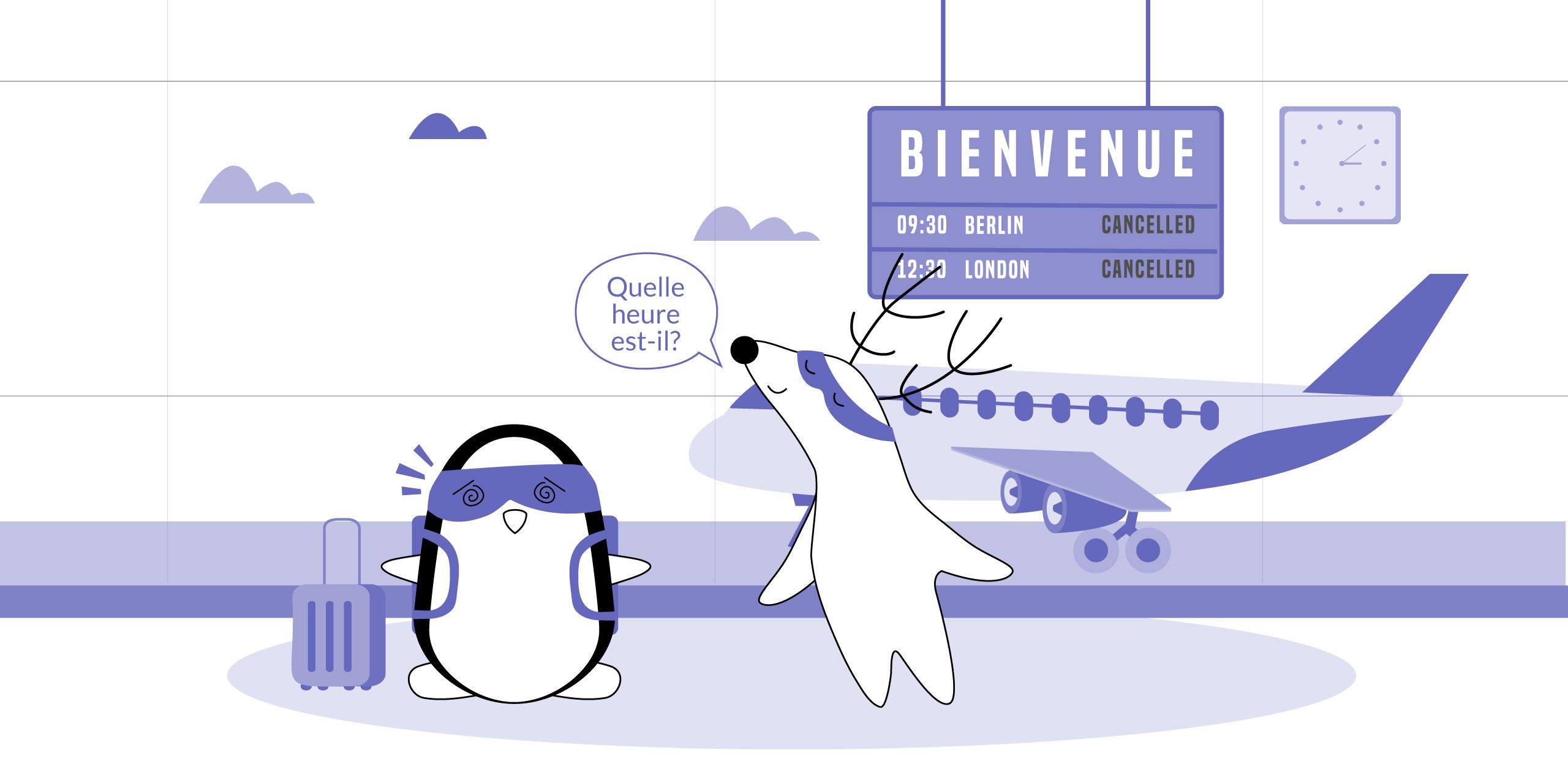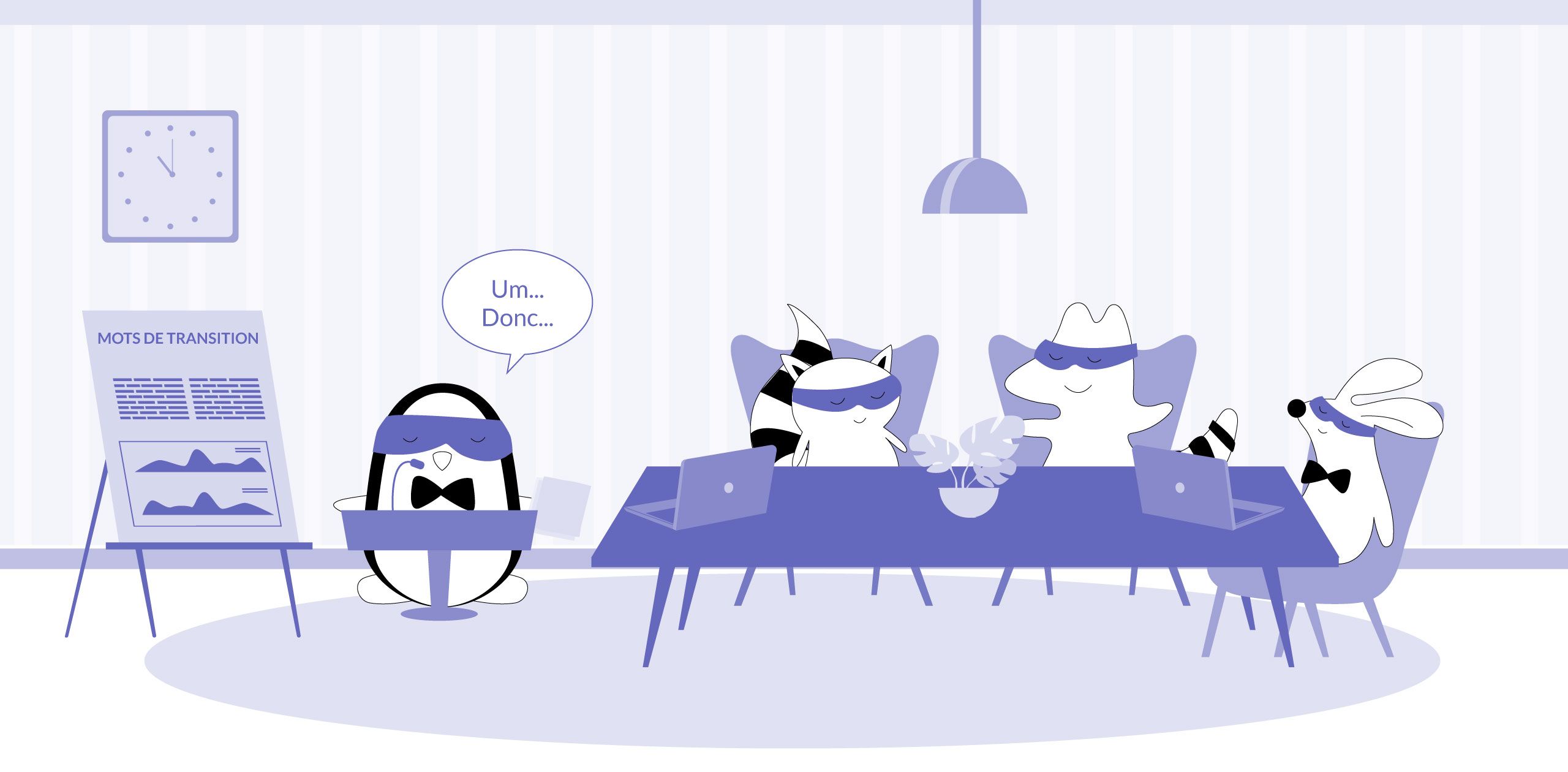
When learning a foreign language, one of the most important things to understand is how to connect clauses together in order to create longer and more complex sentences. This is especially true for French, a language that relies heavily on transition words in order to create fluid speech.
In many languages, connecting words are also necessary for connecting different sentences in a paragraph, or paragraphs in larger pieces of writing like essays or other academic papers.
In this article, let’s discuss the various types of transition words available in the French language, and how they can be used to make your French – both oral and written – sound more fluent. We'll also provide some examples so you can see how these words work in practice and take your vocabulary to the next level. Read on!
Different Types of Transition Words
There are a variety of transition words that can be used in French, each with its own unique purpose. Let’s take a look at some of the most common types of transition phrases used in French. Don’t worry about the translations, we'll get to those in the next section. Let’s dive in:
1. Introducing a topic
"D'abord, je voudrais parler de... "
This is perhaps the most common type of transition phrase in French. Use it to introduce a new topic or idea. It is a great way to start off a sentence if you’re writing a scientific paper or presenting at a conference, as well as starting an informal conversation you want to keep organized.
2. Adding information
"De plus, il est important de... "
The type of transitional phrase is used to add additional information to what has already been said. They exist to provide extra detail in your sentences and can be really helpful if you want to add additional thoughts to an argument.
3. Showing cause and effect
"Par conséquent, en outre…"
You can use phrases like this to show that one event is the result of another. They are a great way to connect two ideas together.
4. Concluding a topic
"Enfin, Finalement... "
These kinds of phrases wrap up a topic, smooth over the ending, and show ways of opening new topics related to the subject. You can use them both in formal as well as informal speech: for example, to conclude an essay or to wrap up the conversation or argument you had with your friends.
Of course, these are not the only groups of connecting words in French: there are also the ones used to generalize a conversation, contrast or oppose a topic, or express an opinion, among others. Let’s take a look at them as well as some other basic transition words in more detail and see how they are used in practice.
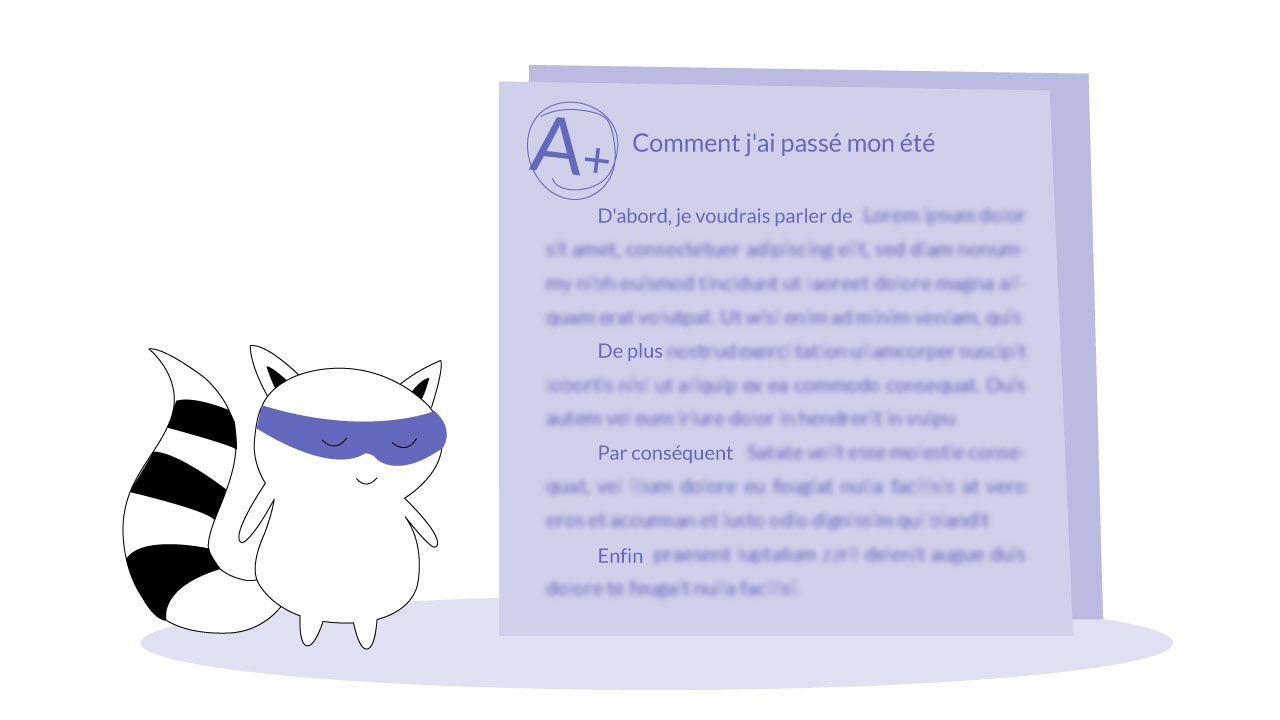
D’abord – First of All
D’abord is one of the most common French transition words, it introduces a new point or idea. It can be translated as “first of all”, writers often use it to start off a sentence or paragraph, as well as to emphasize the first key point of your speech. For example:
Native
Translation
D’abord, je voudrais remercier tout le monde.
First of all, I would like to thank everyone.
Ensuite – Next
Ensuite is another common transition word in French, and the English equivalents are “next”, “after that” or “then”. The French use this phrase to introduce a new point or idea, and can be used at the beginning of a sentence or paragraph. Here’s what it can look like:
Native
Translation
Ensuite, nous allons discuter de nos options.
Next, we will discuss our options.
Ainsi que – As well as
Ainsi que is a French transition word that translates to “as well as”. This phrase can introduce a new point or idea, and can be inserted at various points within a sentence. For example:
Native
Translation
Je parle anglais et espagnol, ainsi que le français.
I speak English and Spanish, as well as French.
Après que – After/When
Après que is a French transition word and a compound conjunction that translates to “after” or “when”. It is usually followed by a verb, and connects with another clause via que. Here’s a sample sentence:
Native
Translation
Nous allons faire une promenade après que nous avons mangé.
We will go for a walk after we have eaten.
You may already be familiar with the preposition après (after) you can use that on its own in a sentence. In that case, it will usually start a sentence or a new clause:
Native
Translation
Après, nous ferons une promenade.
After, we will go for a walk.
Avant que – Before
Avant que is a French transition word that means “before”. Much like many of the other phrases, you use it to bring up a new point or idea, and the phrase is generally followed by a verb. It is quite similar to the grammar construction après que, so the sentence with it usually looks something like:
- The first clause + avant que + the second clause which starts with a verb
Here’s that in a sentence:
Native
Translation
Je vais préparer le repas avant que tu arrives.
I will prepare the meal before you arrive.
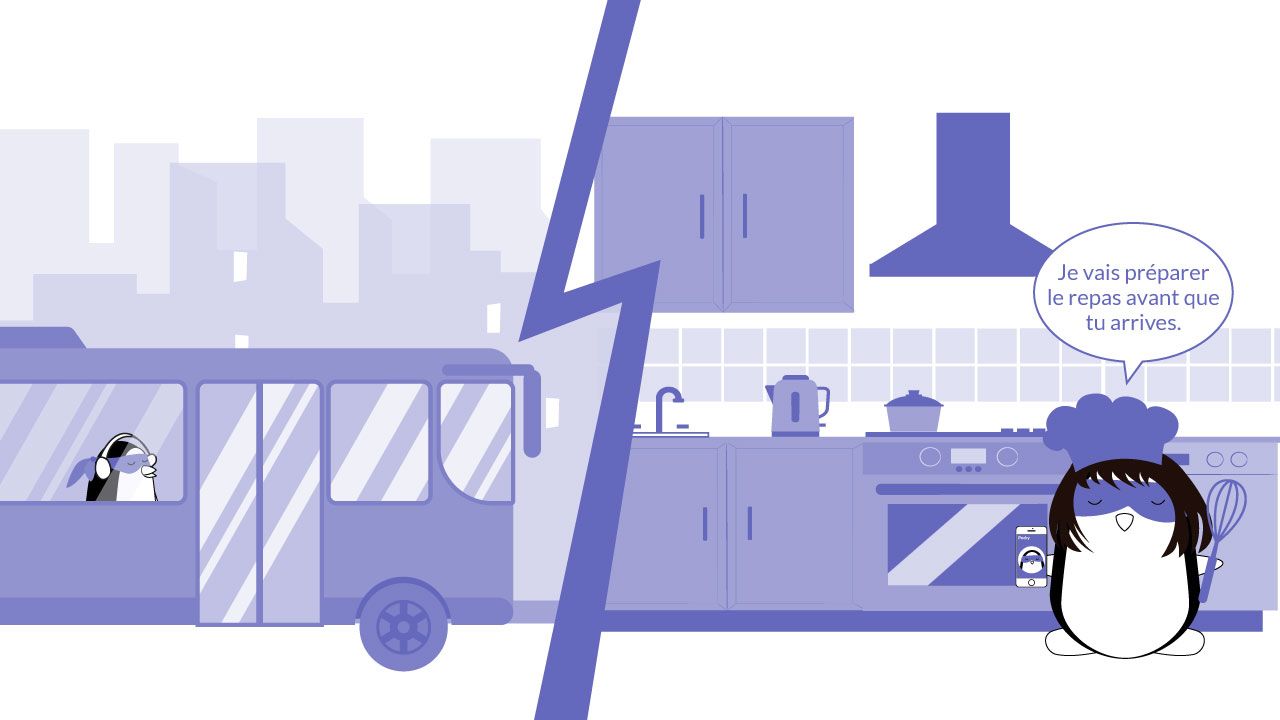
Just like with the après que, we can use the preposition avant (before) on its own in a sentence:
Native
Translation
Réfléchissez avant de faire quelque chose.
Think before you do something.
Puis – Then
Puis is a common French transition word which the French use the way English speakers use “then” – it appears in various literary and scientific works. Look out for it: it can appear in many French conversations with native speakers and is a necessary French word to know for French learners.
Usually we use it to connect two clauses together in a sentence, or make a smoother, more specific transition between two sentences. For instance:
Native
Translation
Puis, il a rompu avec moi.
Then, he broke up with me.
Comme or Puisque – Since
Comme and puisque both function the same way “since” or “as” do in English There’s a difference between them, though: if you want to show the cause and result in one sentence, use comme; and if you need to just give an explanation, use puisque.
Another difference is that comme usually comes at the beginning of the sentence, while puisque can go in the middle of the sentence if necessary.
Native
Translation
S'il te plaît, lave la vaisselle puisque tu as déjà fini de manger.
Please wash the dishes since you finished lunch already.
Comme tu ne peux pas boire de lait, j'ai acheté du jus de fruit pour le petit-déjeuner.
Since you can't drink milk, I bought some juice for breakfast.
En outre/En plus – Besides/Also
Besides being a great way to start off a sentence or paragraph, en outre is also one of the more common transition words in French – you can encounter it in many written French sentences. **Its alternative, en plus, is more common in spoken French conversations.
Both en outre and en plus translate to “besides”, “also,” “in addition” or “furthermore”, and are used to add something to the sentence – for example, a new argument you forgot about.
Native
Translation
En outre, je n'aime pas trop les gens qui sont toujours en retard.
Besides, I don't really like people who are always late.
Donc – So
Donc is a French transition word that means “therefore” or “so”. Use it to introduce a new point or idea, and is usually followed by a subject and a verb.
It is also one of the most common transition words in the French language, so you will hear it everywhere – from advanced French speakers, intermediate students, native speakers, and basically everyone who knows French at a conversational level.
Native
Translation
Il pleuvait, donc je suis resté à la maison.
It was raining, so I stayed home.
À mon avis – In my opinion
A great way to state your own point of view, à mon avis is the French equivalent of “in my opinion”. You can use it at the beginning of a sentence followed by your own idea or suggestion, or you can insert it in the middle of a conversation to show that you strongly believe in what you’re saying.
You can also say pour moi tif you want to avoid formality and express an opinion in a simpler way. Selon moi / Pour ma part / Pour moi are another less formal alternatives.
Native
Translation
À mon avis, il est temps de partir.
In my opinion, it's time to leave.
Bien que – Although
We use the conjunction “although” to connect two contrasting ideas or phrases. In French, the conjunction “although” is bien que, which is often followed by a new clause.
Native
Translation
Bien que je te voie souvent, je te manque.
Even though I see you often, I miss you.
Parce que/car – Because
The words parce que and car both mean “because” in French, and can be used interchangeably. Parce que is a little bit more formal than car, but both are correct. They are usually followed by a clause, and can stand at the beginning or in the middle of a sentence.
Native
Translation
Parce que je n'aime pas les légumes, je ne mange jamais de salades.
Because I don't like vegetables, I never eat salads.
Tant que – As long as
French people use the conjunction tant que to express the idea of “as long as”, and is often followed by a new clause, just like other transition phrases ending in que. It can show up at the beginning or in the middle of a sentence, and is a great way to connect two ideas that are related to each other.
Native
Translation
Tant que tu es heureux, c'est tout ce qui compte.
As long as you are happy, that's all that matters.
Cependant – However/Nonetheless
Cependant is a French adverb that functions as a transition word and means “however”, “nevertheless” or “nonetheless”. You can use it at the beginning of the sentence to show a contradiction or opposition. For example:
Native
Translation
Cependant, je dois étudier aujourd'hui.
However, I have to study today.
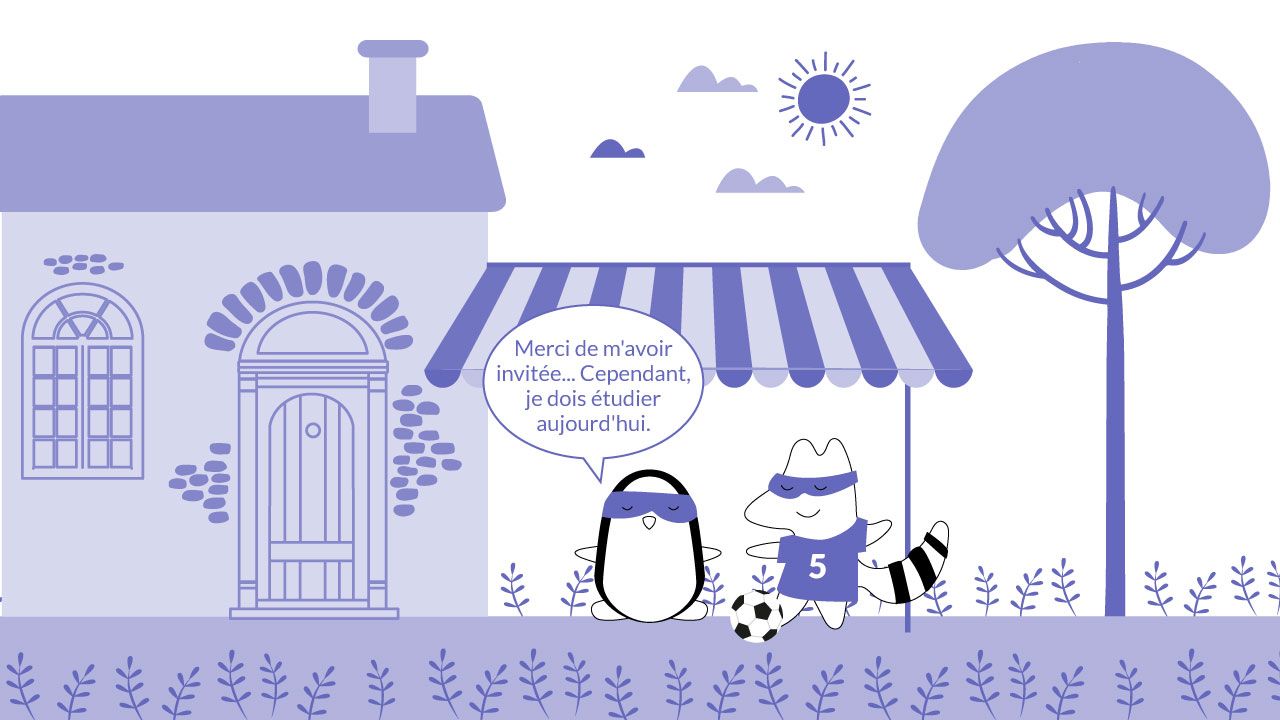
Lorsque/Quand – When
You might already be familiar with the word quand in French, which means “when” – with lorsque being its formal alternative. When talking about time, they are interchangeable.However, these two words have their own different translations: quand can also mean “whenever,” and lorsque can mean “whereas.”
Both these transition words are usually followed by a clause, and can stand at the beginning or in the middle of a sentence.
Native
Translation
J'étudiais quand tu m'as appelé.
I was studying when you called me.
Par conséquent – Therefore
Par conséquent is another great transition word that can translate to “therefore”, “consequently” or “as a result.” Use it to show a logical consequence of what has been said before, and is usually followed by a new clause or a new sentence.
Native
Translation
J'ai eu une mauvaise note, par conséquent je dois étudier plus.
I got a bad grade, therefore I have to study more.
Au contraire – On the contrary
Au contraire is the French translation of “on the contrary,” and expresses the opposite of what has been said or what is generally accepted. It might show up at the beginning or in the middle of a sentence, or on its own as an answer to the question.
Native
Translation
Tu n'as pas étudié? Au contraire, j'ai étudié toute la journée!
You didn't study? On the contrary, I studied all day long!
Enfin – Finally
Enfin is a French adverb that can be translated as “finally” or “after all.” You can use it to conclude your argument, or to show that you have finished talking about a certain subject. Just like other transition words, you can use it at the beginning of the sentence or in the middle.
Native
Translation
Enfin, je suis désolé.
Finally, I'm sorry.
You can also use another transition word à la fin as an alternative to this one: the meaning is the same.
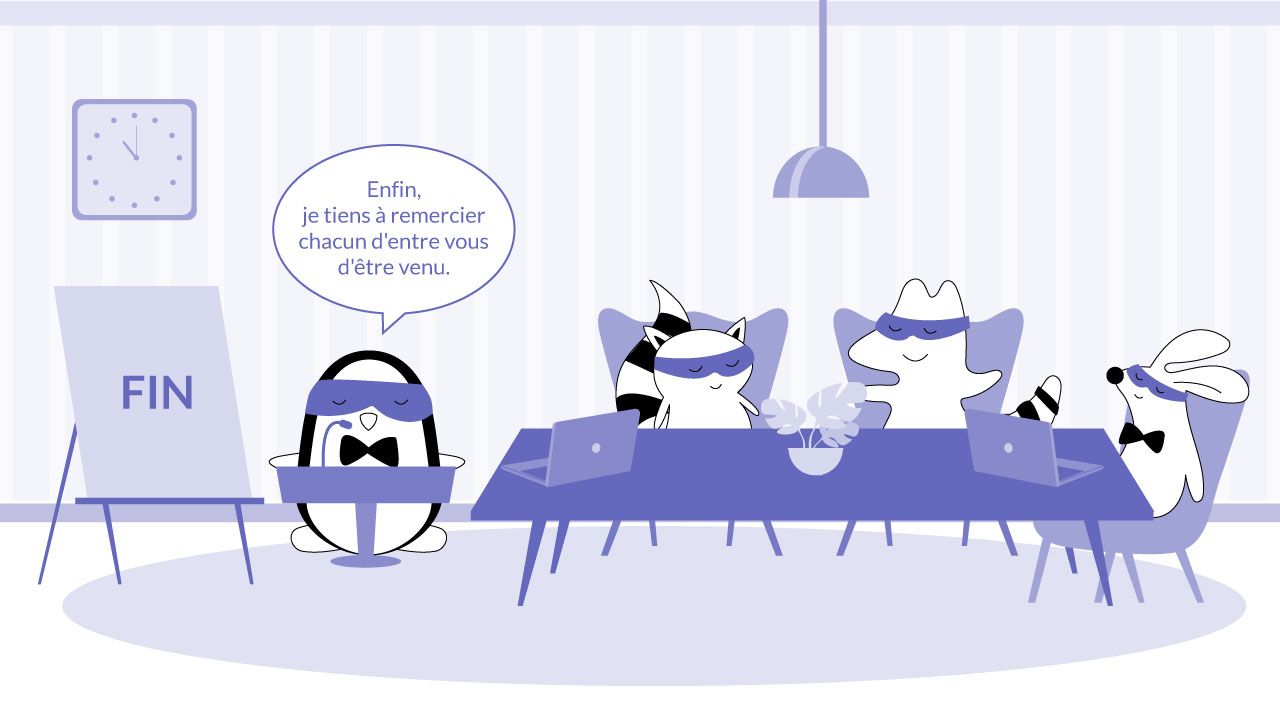
Some Final Notes on French Connecting Words
By using these connecting phrases, you'll be able to create more complex sentences with ease – and sound like a true francophone during any French conversation.
Of course, there are so many other important transition words worth knowing in French that we haven’t mentioned above, so don’t stop learning. Keep practicing and improving your vocabulary, and before you know it, you'll be able to speak and write French fluently. Bonne chance !








